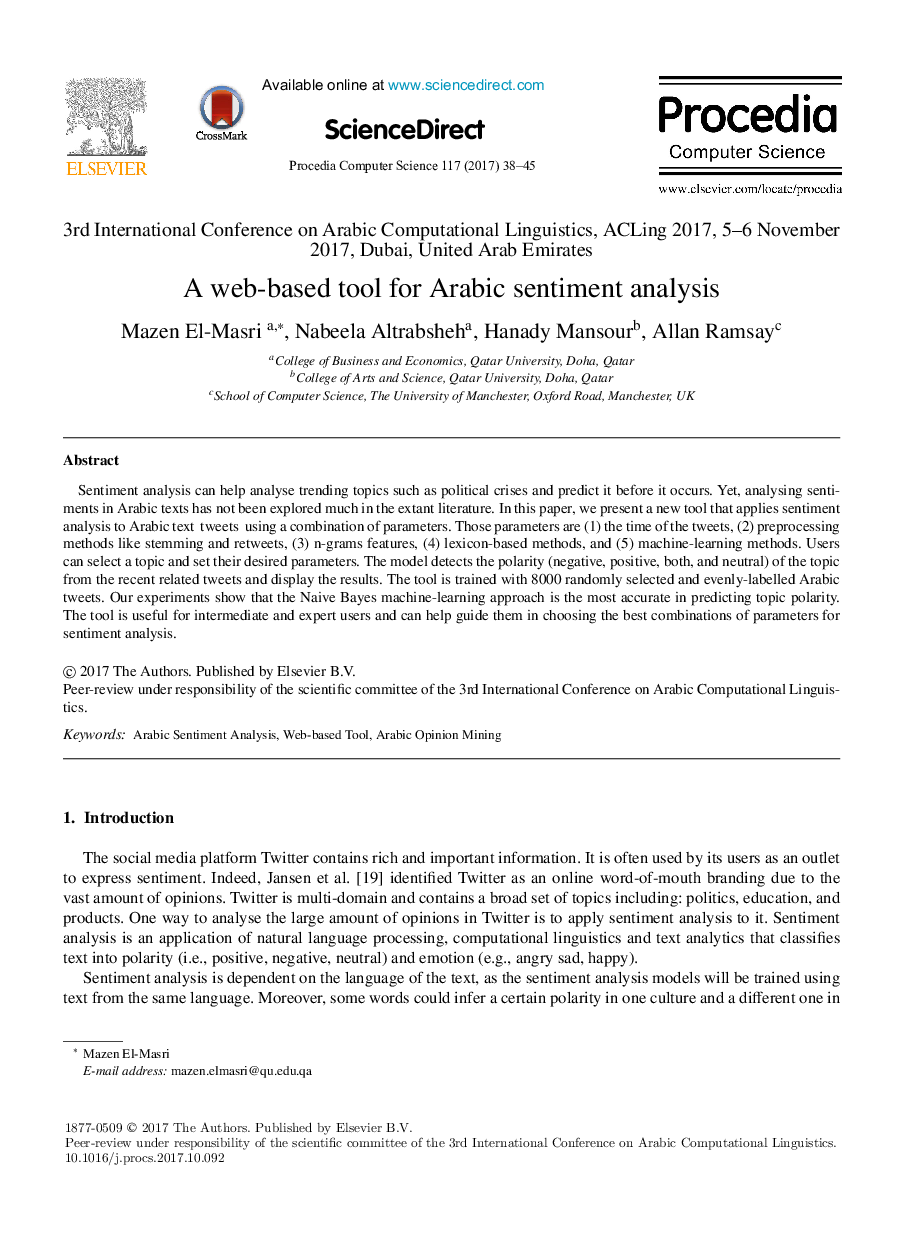| Article ID | Journal | Published Year | Pages | File Type |
|---|---|---|---|---|
| 6902030 | Procedia Computer Science | 2017 | 8 Pages |
Abstract
Sentiment analysis can help analyse trending topics such as political crises and predict it before it occurs. Yet, analysing sentiments in Arabic texts has not been explored much in the extant literature. In this paper, we present a new tool that applies sentiment analysis to Arabic text tweets using a combination of parameters. Those parameters are (1) the time of the tweets, (2) preprocessing methods like stemming and retweets, (3) n-grams features, (4) lexicon-based methods, and (5) machine-learning methods. Users can select a topic and set their desired parameters. The model detects the polarity (negative, positive, both, and neutral) of the topic from the recent related tweets and display the results. The tool is trained with 8000 randomly selected and evenly-labelled Arabic tweets. Our experiments show that the Naive Bayes machine-learning approach is the most accurate in predicting topic polarity. The tool is useful for intermediate and expert users and can help guide them in choosing the best combinations of parameters for sentiment analysis.
Keywords
Related Topics
Physical Sciences and Engineering
Computer Science
Computer Science (General)
Authors
Mazen El-Masri, Nabeela Altrabsheh, Hanady Mansour, Allan Ramsay,
